Richard speaks to international speaker, IT business owner and diversity champion 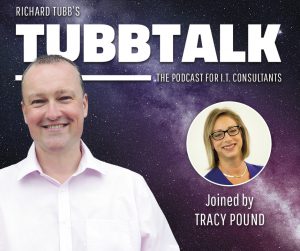
Tracy Pound on how the MSP industry is helping advance women in IT.
Tracy Pound is the Managing Director at Maximity. She also works on the board of directors at CompTIA and, above all that, she is one of the strongest, smartest, most savvy women in the IT industry.
Interview with Tracy Pound
CompTia is the Computing Technology Industry Association. It’s a global trade association that’s designed to support people within the tech industry with multiple different facets that helps it do this.
Their core focus is around building and selling certifications, so if you’ve come across A+, network+ or security+, that is CompTIA. They’ve built that out as their core and they sell certifications around the world to the tune of around $85million a year and growing. That money then gets reinvested back into the membership side of the organisation.
CompTIA have membership communities around the world. They have a UK community. A new Benelux community that launched earlier this year. Plus communities all over including Australia, New Zealand, Canada and of course the biggest one is in the USA, because it’s an American trade tech association. The membership is expanding geographically, very quickly. And they are looking at where they can put new communities to support people who already work in the tech industry. Whether you are a vendor, distributor, MSP, tech consultant, whether you work in aligned industries eg. lawyers who specialse in digital law and GDPR. The community is there to support all those people and bring them together. Not just to network, but also to further their business and the industry as a whole.
The membership community deals with many things including wider workforce issues. They look at questions such as: “how do we get younger people engaged within the tech industry?”, “how do we make sure that we keep the skills and the expertise that we’ve got in it”, and “how do we grow it as a professional industry, as a profession, rather than just an industry?”.
CompTia also do a lot of work and advocating on Capitol Hill to try and make sure that governments pay attention in the right way to tech and how it develops. Especially when it comes to cybersecurity. There is quite an interesting dynamic between stopping people from hacking on a global scale and sharing what they shouldn’t be sharing, versus governments that want you to keep your data close to you.
But cyber security in general is a huge topic and they look at how to educate end users, plus how to educate MSP’s, vendors and distributors on how to keep data safe.
So CompTIA is there as a voice for the tech industries for all of those kinds of activities. And it’s a home for people who want to be part of the community. They have multiple different communities including advancing women in IT, advancing diversity in IT.
There is also the research element. CompTIA do lots of research as well, and that research is then delivered back via the website on CompTIA.org. Plus, they will go out to events to talk about security, trends or managed service provision.
CompTIA also has a foundation for creating IT futures in America. It’s designed to try and help people who are going through college education or school education to get into a career in tech to start with. They are looking at different ways to deliver exams to make it easier and an all round better learning experience. Something that people can engage with. It’s trying to support an exam methodology that supports the way we actually work in real life, to simulate it, to make it easier so that when you come out from an education, you are truly ready for the world of work. So there’s a lot of exciting stuff that’s going on that level, and it’s great.
As you can probably tell, CompTIA is a very big organisation and does a lot to make sure the tech industry is future proof and sustainable.
What Can People Expect From a CompTIA UK Channel Community Meeting?
They can expect a lot of inspiration. There will be networking with peers. Learning via the research that CompTIA does. For example, at the last meeting we had a business genius cafe. So people could book a slot to talk to an expert in finance, in HR, in diversity, in sales and in operational efficiency, and get some advice for free. So a lot of the stuff that CompTIA does is delivered out as part of the membership. It’s a very low cost entry and has a lot of value add once you get inside it because everything is included. It’s helping people to further their businesses. It’s giving people the opportunity to listen to industry and business experts.
The EMEA is a big conference that CompTIA have in the UK, usually in October/November time. It’s done in collaboration with the certification team and it’s an event to educate. Plus it has a big vendor fair. So it gives people an opportunity to promote what their solutions are and it gives people who are members the opportunity to go and talk to those vendors, find out what they’re developing, look at where emerging tech’s going, what the next solutions are that are coming out. But most importantly, it’s designed for people to share ideas, share information, that at the end of the day, helps them to have a sustainable, better business. At the last EMEA meeting in October, Karen Brady was a keynote speaker. She was absolutely fantastic, very high profile, and helped to give people a bit of inspiration and something they can take away with them to improve their business. The community events support people and help them learn something.
It’s a no brainer. CompTIA does so much good for the industry and it’s a community of people who are givers, they share knowledge, they help the industry grow, they help one another grow. It’s just a fantastic organisation. Want to know more about CompTIA? Listen to another podcast episode to hear some thoughts from attendees of an CompTIA EMEA conference: Who are CompTIA and how can they help your IT business? TubbTalk #16
Why Are There Not More Women in the Tech Industry?
I already mentioned that Tracy is one of the smartest and savviest women in the IT industry. But the IT industry is so poor at attracting these types of women. Why is that? Again, it’s a long answer. It’s a complex problem, which doesn’t have an easy solution. A lot of it is down to unconscious bias. People like people that are like them.
Back in 1984, when Tracy started in the IT sector, when the IBM PC first came into the market, when Microsoft wasn’t the be all and end all to everything. There was no precedent for how people worked or what people needed to look like to be successful in tech. So people forged their own path, and became successful. And over time the industry has moved towards a more traditional set-up, which companies generally do as they mature – they start to look like other mature companies. And a lot of mature companies look like white men in suits. And so as the industry progressed it followed this route. But for women, that actually means that they have less of a voice now in a growing industry than they did 20 years ago, when the market wasn’t so mature.
With tech, there is still a way to go in terms of maturity. And whether it will get there, we don’t know as tech changes so quickly so it may never fully mature as it always morphs and changes into something else.
So a large part of the reason that women aren’t attracted to the industry is due to an unconscious bias. There aren’t many role models for women to follow. Because we do what we’ve done before, because somebody’s already done it and therefore it’s easier and quicker to set up. And now the industry is stuck in a rut, which they are slowly moving out of, but the rut is very difficult to change as it is hard to change people’s view of what they do and why they do it.
Some companies don’t even realise they are doing it. But a lot of tech websites use imagery that sits around men. A lot of imagery around mechanical things. And girls are often not exposed to this growing up, so they will look and it and think it doesn’t look like them. So they go a different path. To change this, and to attract women to tech, we have to follow a different path. But that’s a really hard thing for people to do. There aren’t enough girls in the pipeline to apply for jobs. It’s hard to get women to interviews.
So first and foremost we have to change this bias.
And from a customer service perspective it makes sense. Most companies that MSPs serve are typically around 50/50 split of men and women. Yet, if you look at the MSP help desk and service desks across the country, certainly in the UK, at least 99% of the time it is men.
You’ve got a bunch of men supporting a bunch of men and women. It should be more representative of the customer that you are supporting.
But for all the reasons above, MSPs are struggling to recruit women into technical roles.
What Can We do to Attract More Women to the Tech Industry?
So what can we do now to start taking steps to change this unconscious bias and attract more women to tech?
It starts at a very young age. For people with parents, if you have daughters, encouraging them to do technical things. They don’t have to be good at maths and that’s one of the big myths that sit around this. What you need is a logical mindset. So long as you can follow logic, which a lot of women can do very well and just as easily as men, then you can work in tech. Encouraging young girls to tech and giving them the opportunity and encouragement to follow their technical roots and to be aware that it’s a good industry to be a part of.
Tech is a growing industry. Many industries are shrinking. We’re in the middle of a fourth industrial revolution and tech is at the forefront. It’s growing and it’s sustainable. So it’s a good career for people. So parents need to know that if their daughters go in tech they will still have a job in 10 years. And they will have the opportunity to have a fantastic career through it as well. So parents need to encourage their children and give them the courage to take those technical courses from a young age.
CompTIA did some research a few years ago that looked at girls and boys who were around about five and six years of age. And at that age, they were already starting to see a difference in the way that their minds were developing. Boys were being given mechanical lego type toys. While girls were given more dolls and creative things. Kids minds form based on how they play. So if girls are also given mechanical toys then they will also develop a capability for it. There is nothing wrong with gaming and computers, it’s a great introduction if you want to go down the coding route and it’s also analytical as well.
We also need to educate teachers about unconscious bias, about how to encourage girls to take up some of those STEM subjects, because it isn’t just computers. It’s not just technology, it’s engineering, it’s maths, sciences. All of those STEM subjects. And we need teachers to actively encourage girls to take those courses.
And we then need to make sure that that follows through into the world of work so that when people are looking for staff, when they are putting a job advert together, when they look at how they promote their organisation that they are appealing to the widest range of people and not just to a narrow band that’s going to encourage largely men to apply for those roles. It sounds a bit harsh, but it is breaking those barriers down. It’s stopping people doing automatic thinking, because we need some dynamic thinking, and for people to make an active change on it, but it’s not a straightforward thing to do. And it’s going to take a generation or so to the point where we’ve got an equal number of men and women in the tech industry. But we’ll get there.
We’ve already got a tonne of fantastic women in IT, but it’s about the next generation coming through, isn’t it? It’s about encouraging the next generation of girls to see technology as a subject that they want to work in.
What Path Has Tracy’s Career in IT Taken?
Tracy’s career has been a long one, 35 years and counting. She started as a programmer writing software for estate agents. She discovered that programming was not where she belonged. She was best getting out and talking to people, and love the installation part of the process, going to configure systems and doing the training. So that’s been the mainstay of her career. But unfortunately, or fortunately, the company she worked for back in 1984 went bust like a lot of companies do. Back then everyone thought they could make a quick buck out of setting up an IT company, without any real understanding how long it actually takes to develop or write software before you even get a hint of a sale, before you ever get a return on that investment. So she had quite an unusual start to her career.
Then she went to work with Olivetti distributor as a trainer with Multisoft accounts, SuperCalc, Multiplan, WordStar, WordStar Professional. She use to train on all the very early DOS based systems but the sales guys on the team would almost sell to well and she’d come into a handwritten note saying: ‘I’ve just sold this to someone can you learn how to use it, your installing and training it next week’. So she had to quickly learn how to use multiple systems. That’s been a fantastic trait that she’s carried throughout her career. Olivetti put her through Unix training because at the time the company had some very early PC networks. Laterally when Novell networking came in and Windows networking came in, it was a completely different world and she didn’t like it. So she got more involved with the end-user side of things rather than the technical side and went on to set up and run a help desk. This was the days before RMM tools and PSA tools and stuff like that, where if somebody had a problem, they’d pick up the phone and it would be diagnosed over the phone without seeing their screen.
Then she went and spent eight years in the automotive industry so saw IT from the other side. She worked as an internal IT manager in a company with their own team of programmers so they wrote their own ERP system.
So Tracy has been lucky enough to see both sides of technology.
Then, once she had her first child in 2000 she decided to set up her own business. Her business now does a lot of training and consultancy around how to use technology better in organisations. She also does a lot of training with CompTIA so is part of their education family around the world.
Tell Us More About Maximity
There is an incredibly complex set of software available now, that will genuinely help businesses move forward, but most people don’t know how to use it properly. So Maximity’s mission is to take the SH out of IT. To demystify it. It shouldn’t be complicated. It should be straightforward. Businesses need to understand how to use technology, but they shouldn’t be technologist.
Maximity work closely with a lot of their clients on a long term basis. Tracy spends her days in-house supporting her clients ensuring their systems, their processes, their data is being put in in the right way, so that they can use it in the right way, so that they can forecast and they can grow in a successful way. Tracy’s job is to try and rein in the explosion of growth that happens in large businesses to make sure that people don’t go off and do their own things all over the place and to make sure that there is a central understanding and control of the data and the way in which it flows around the organisation.
One of their clients has 13 electronic tools. They are all linked to Sage 50 accounts. Most people think Sage 50 is an accounting package, but it’s way more than that. So it’s stock order, order processing, project control and it can be manufacturing control, plus payroll. So there’s a lot of data that organisations can use to decide what is selling well and what isn’t, what the margins are, what stock levels are, what’s slow moving, fast moving and who orders what. There is a load of analytics that sit behind it if you know how to get that out of the system. Maximity does a lot of the work that sits around making sure systems are put together. This helps keep the data clean, especially if staff change and aren’t trained correctly. With GDPR coming in, this was especially important as companies needed to know where data was, how it was used and where it was backed up.
Companies are not technical, they are not in it to be IT companies. Maximity are the IT expert. They bridge the gap between the technical and the non-technical. Maximity have some fantastic customers, that are very very long time customers. They see the value Maximity have in forwarding their business.
The Future of MSPs
I think the future of the managed service is going to be more about business process, helping small businesses to do things faster, better and cheaper, using automation, connected technologies, that sort of thing.
At some point over the life of MSPs they have come away from the training bit, which doesn’t make sense, as training is what creates sticky customers. If customers can’t use their software, whether that is Excel or Word or Sage, whatever application it is. If a helpdesk can’t help them out on that front, then the end user gets really frustrated. When they get frustrated too much, that’s the point at which they move on to somebody else. So it doesn’t make sense for MSPs to not close the loop on the training element.
So, this is a huge opportunity for MSPs. Maximity get a lot of calls from companies because MSPs can’t do the training for them.
Who Are Tracy’s Role Models?
We already know that Tracy is a massively influential figure in the IT industry. But who does she see as a role model?
Fiona Challis is somebody that Tracy really looks up to. She’s a super salesperson. She’s a superb sales trainer. And an amazing speaking. Just an all round brilliant businesswoman. (Listen to the recent podcast episode starring Fiona sharing her expertise on How to do Awesome MSP Sales)
Nancy Hammervik at CompTia who runs all the communities around the world is also a massive inspiration. I’ve never known anybody to work so hard in all my life.
Mark Matthews, his ethos, his way of working, what he’s been through. When you hear people’s stories of things that they’ve had to put up with, how their businesses have gone and how they’ve turned it around. It’s phenomenal.
Lady Karren Brady has had such a great career, especially being a woman up against it in a very much male dominated world.
Richard Branson, when you look at what he’s achieved, it really helps motivate you if you are having a bad day.
Amy Kardel as well, who’s the ex Chair of the Board of Directors for CompTIA. As a woman, she is just a superpower. She just does so much stuff, it’s untrue. Self learning and self development, as well as a lot of giving back and a lot of energy.
And of course, one of Tracy’s inspiration is her husband. He’s very supportive. They have a bit of role reversal. Peter has his own business, he’s an insurance broker, but they share offices, and it’s Peter that stays at home as Tracy travels.
What is Next for Tracy in 2020?
So what’s next for Tracy Pound? What will 2020 hold?
Tracy is trying to put all the pieces of a jigsaw puzzle into place. Next year is going to be a huge year of growth. This year, was all about putting systems in place. Next year is growth including employing more salespeople and trainers. Office 365 is a massive opportunity. Of course, Sage will still play and important role as there is still huge demand for it. But so will Xero cloud accounting. And Office 365 has massive potential.
Want to get in touch with Tracy? Get in touch using the contact details below.
Mentioned in This Episode
Connect with Tracy
LinkedIn: Tracy Pound
Twitter: @TracyJPound or Maximity_UK
Facebook
Website: Maximity.co.uk
Email: Tr***@Ma******.uk
Connect with Me
- Subscribe to TubbTalk RSS feed
- Subscribe, rate and review TubbTalk in iTunes
- Subscribe, rate and review TubbTalk on Stitcher Radio
- Subscribe and rate TubbTalk on Spotify
- Follow TubbTalk on iHeartRadio
- Follow @tubblog on Twitter
You Might Also Be Interested In
- Who are CompTIA and how can they help your IT business? TubbTalk #16
- A List of User Groups for UK Managed Service Providers
- Being a Woman Working in a Male-Dominated Industry – TubbTalk #27

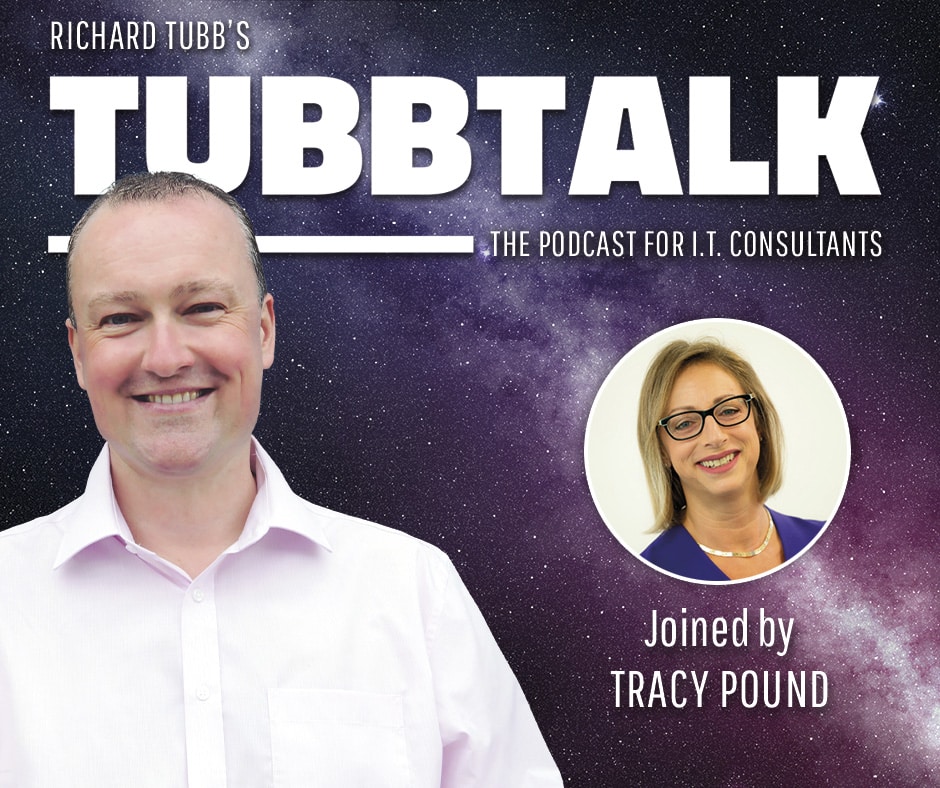

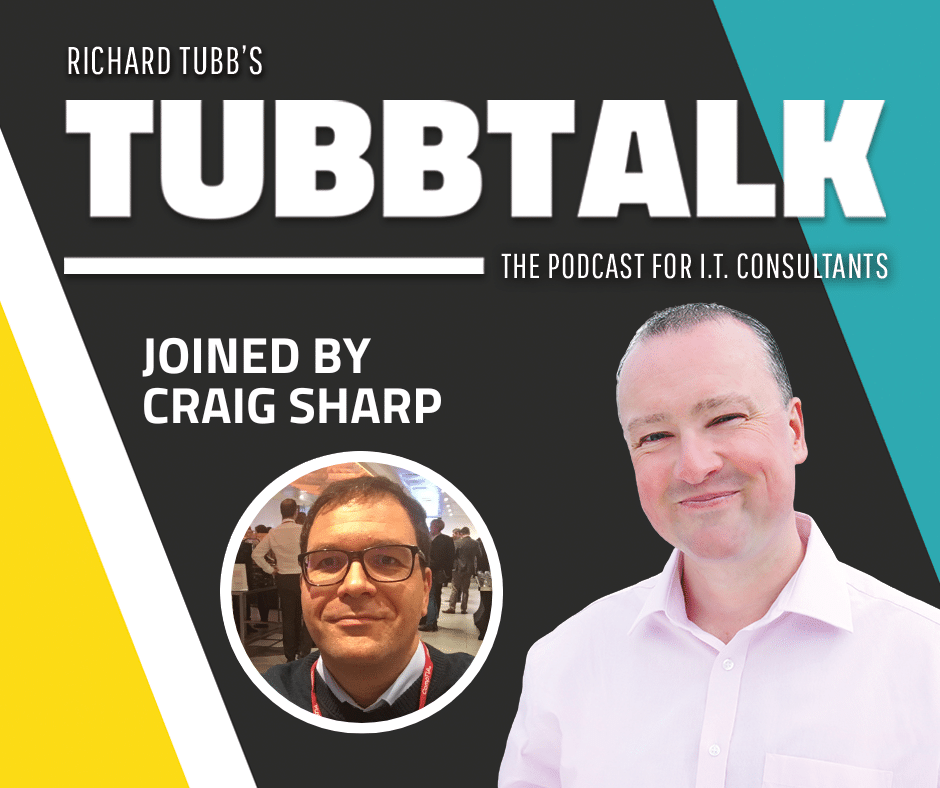
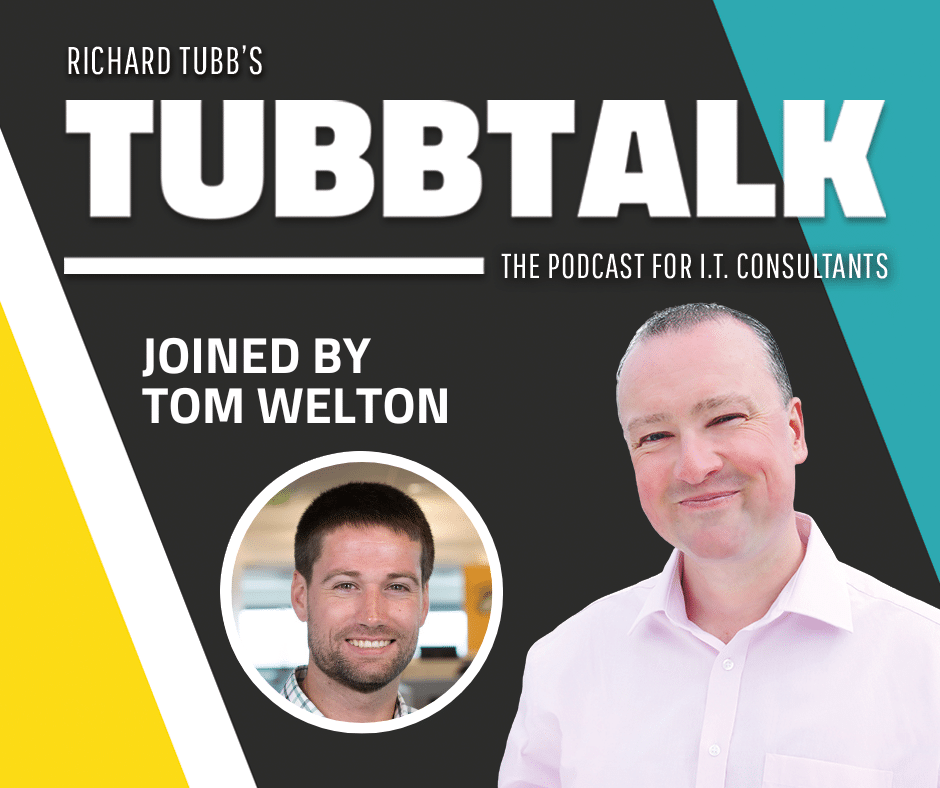
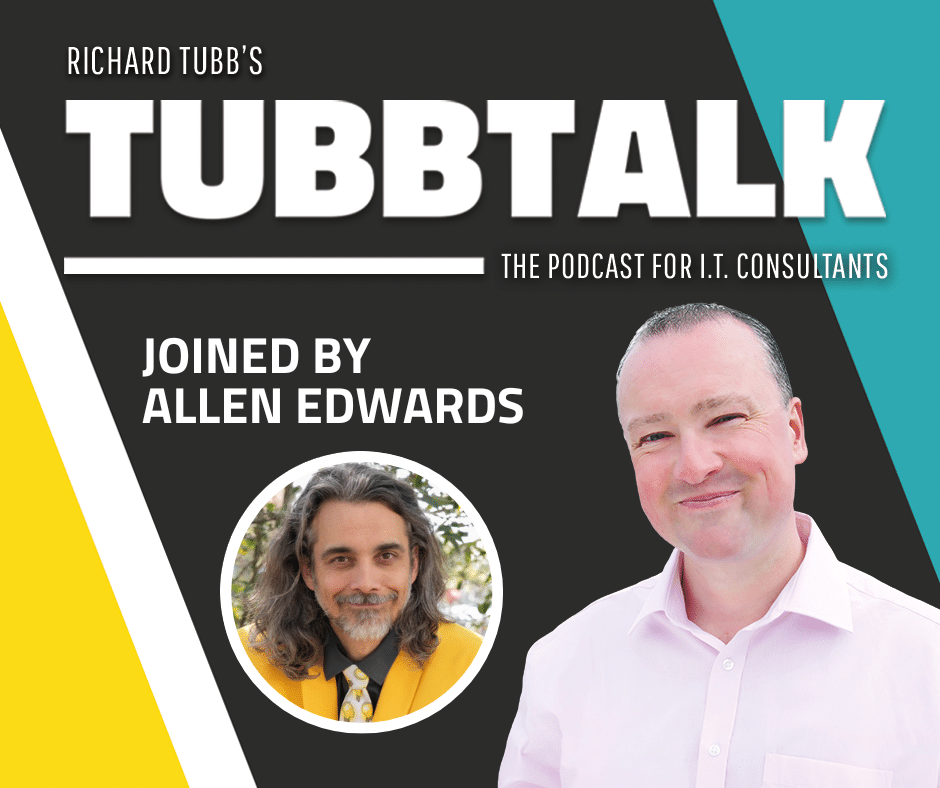
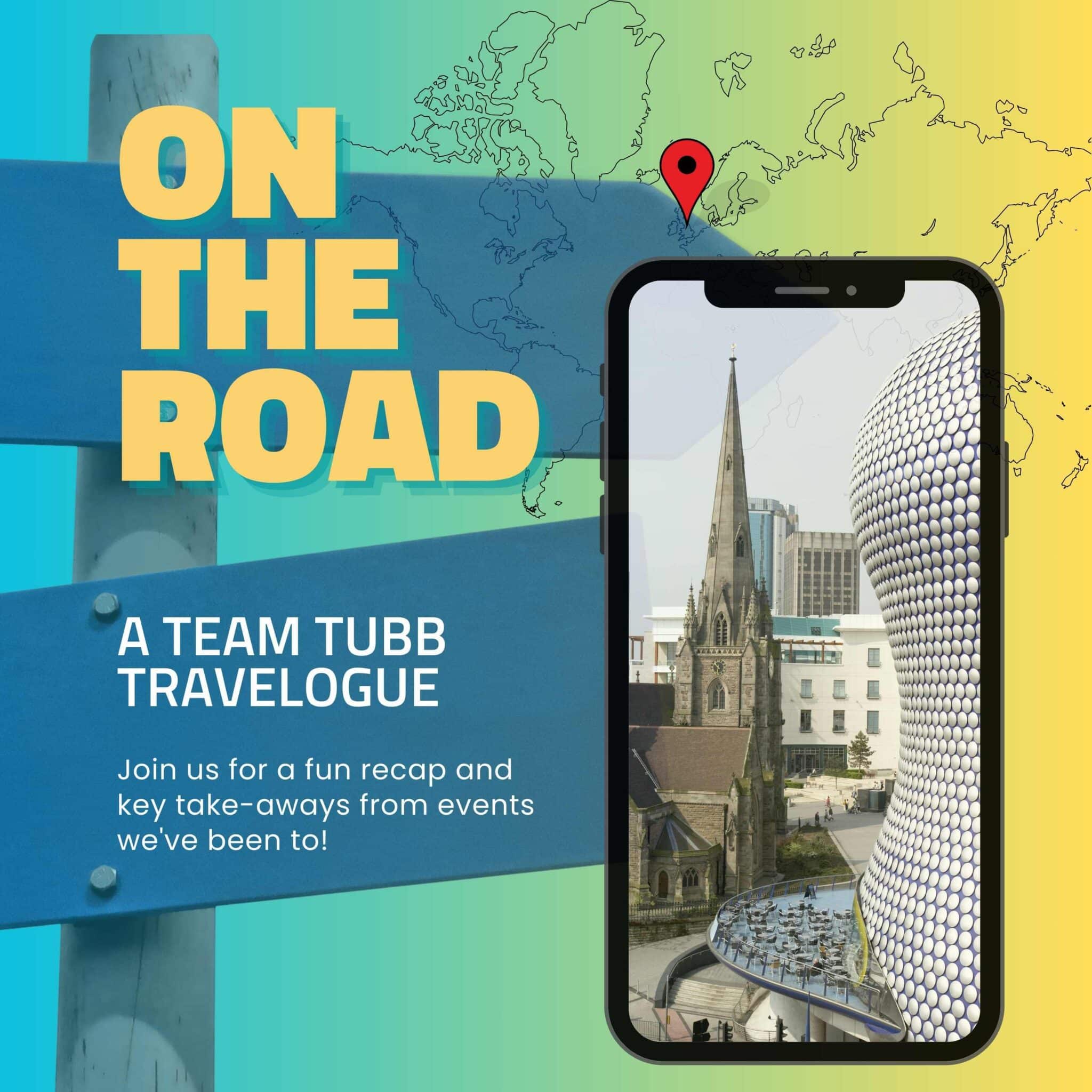
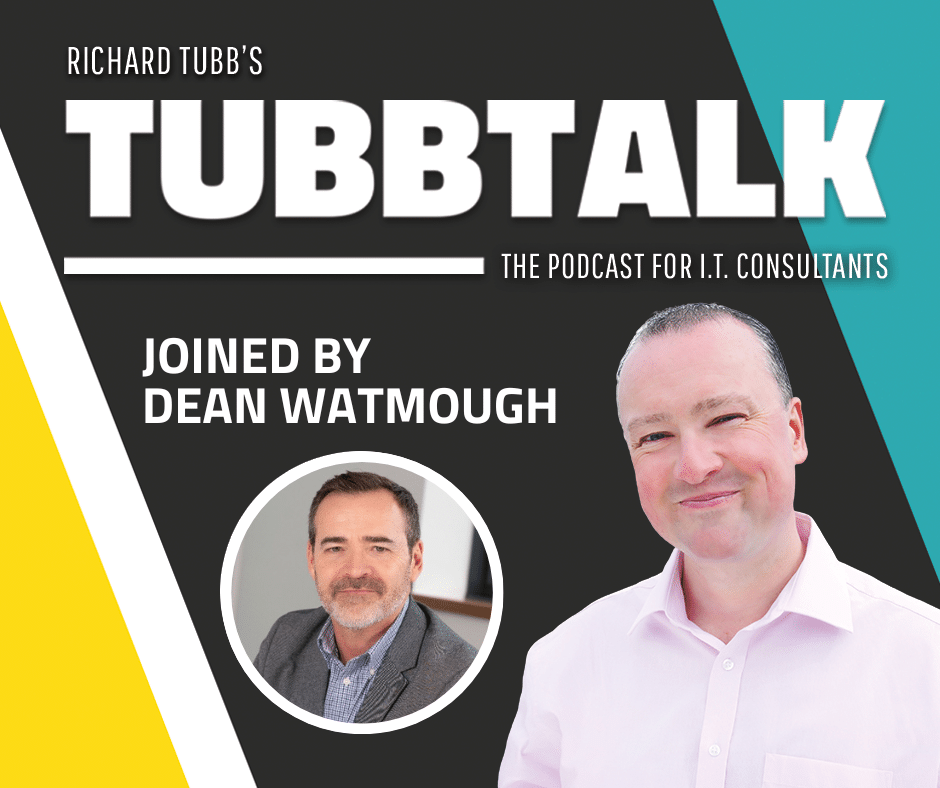
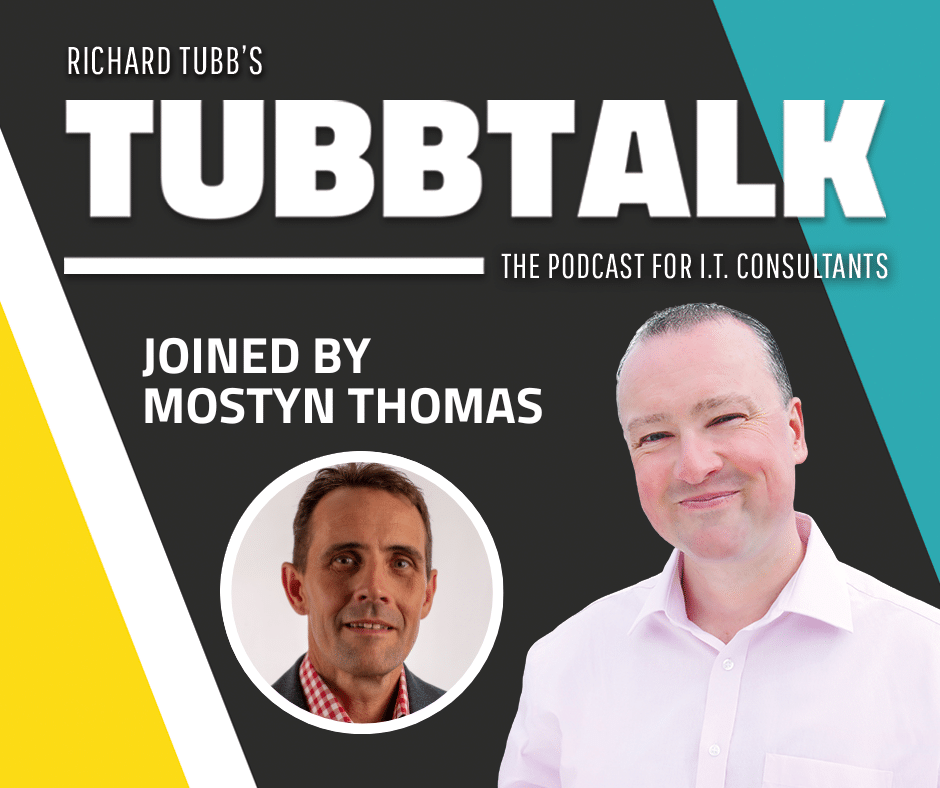

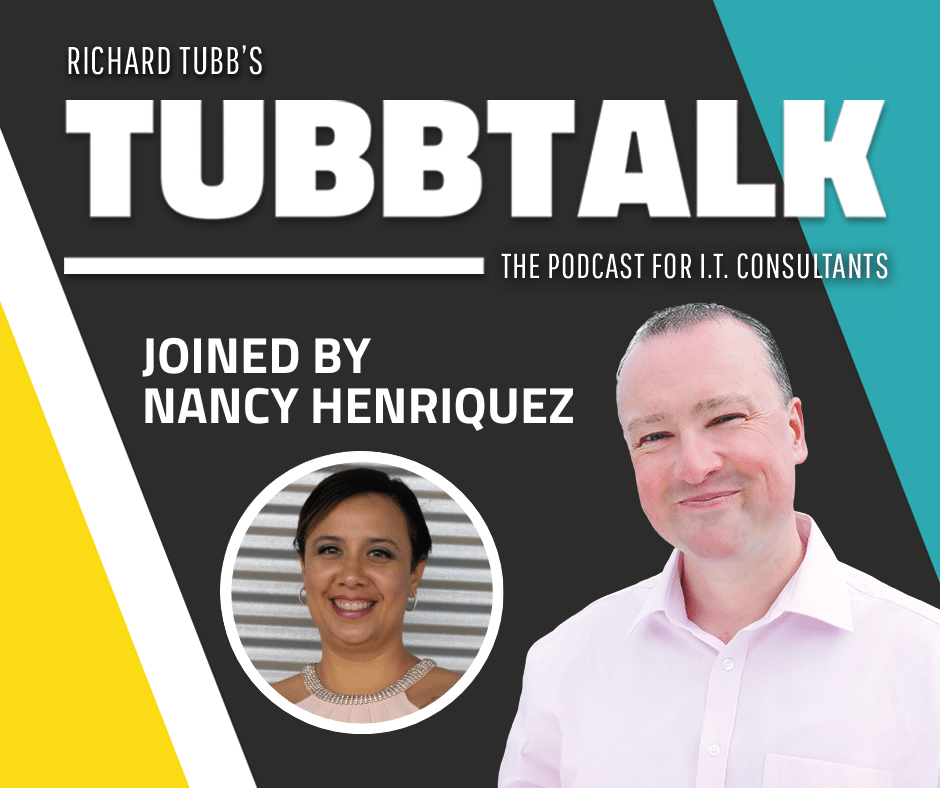
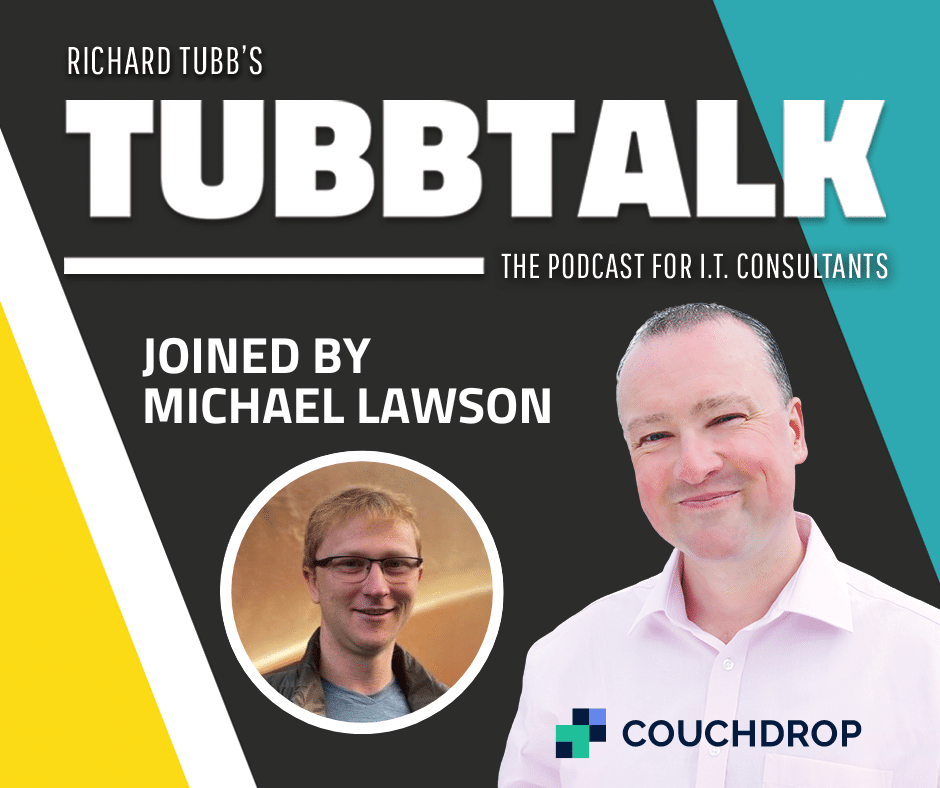
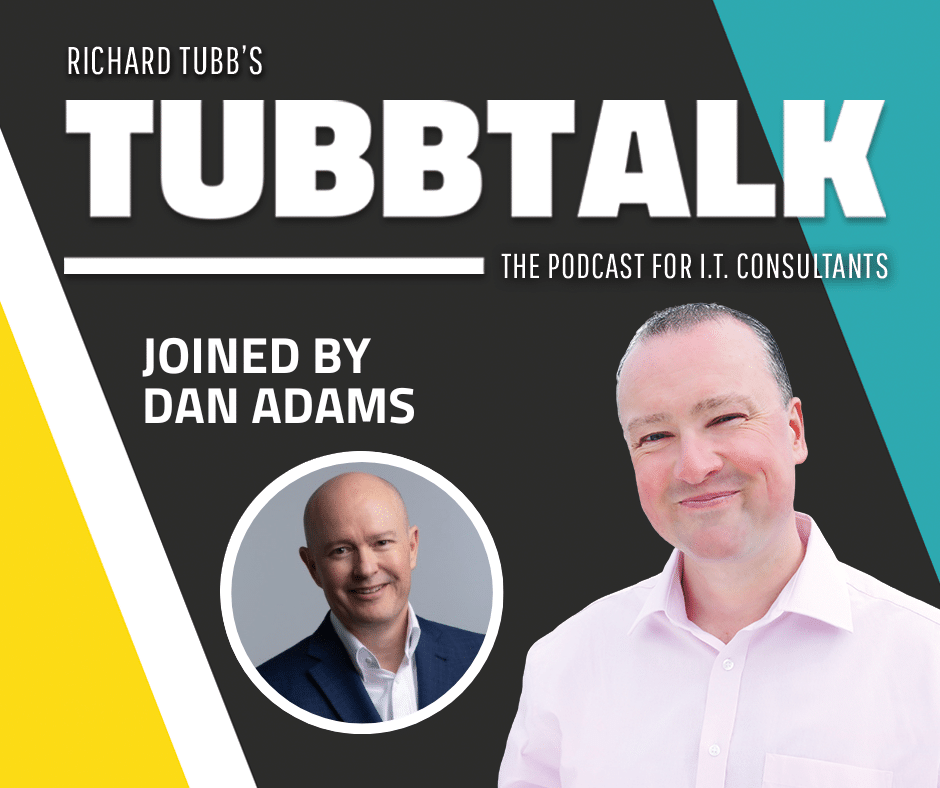
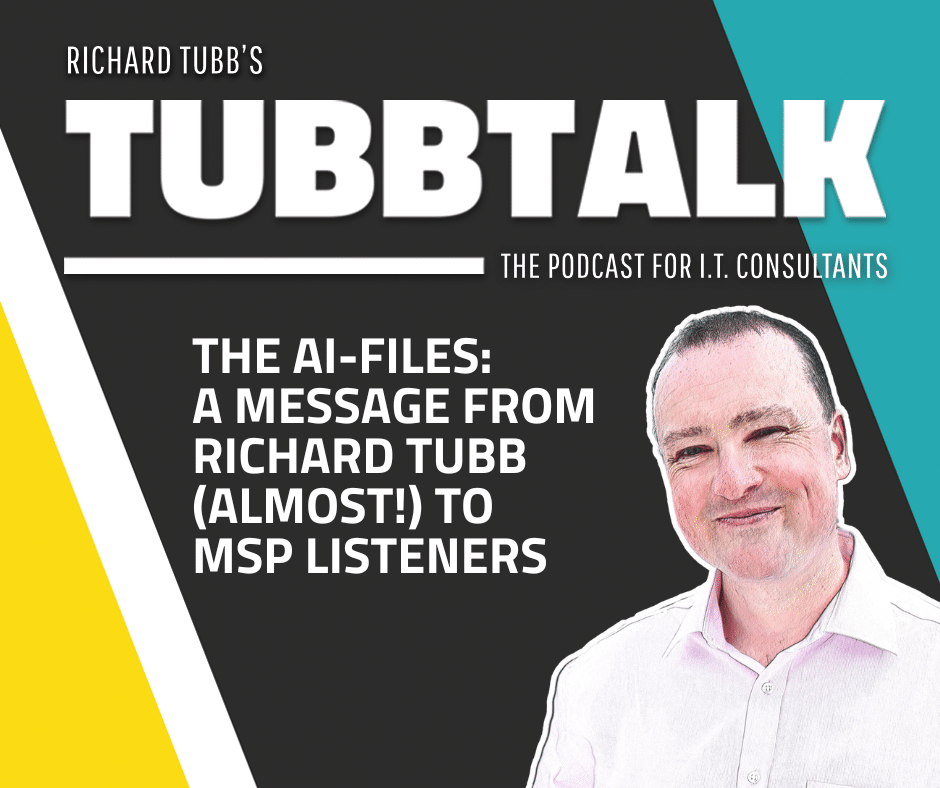
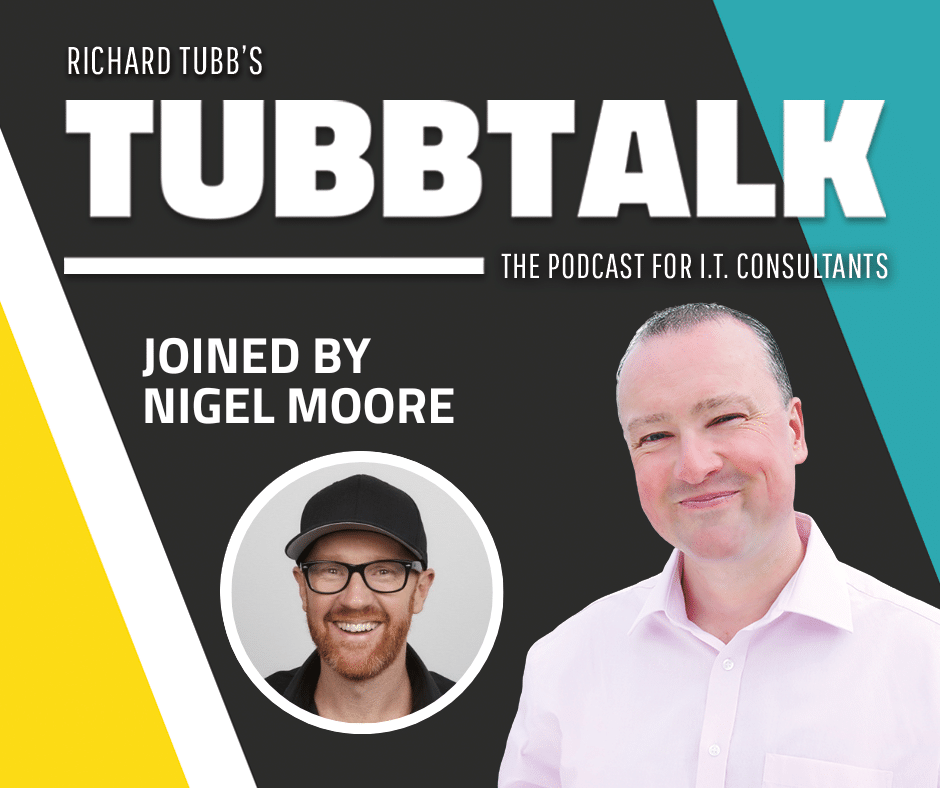
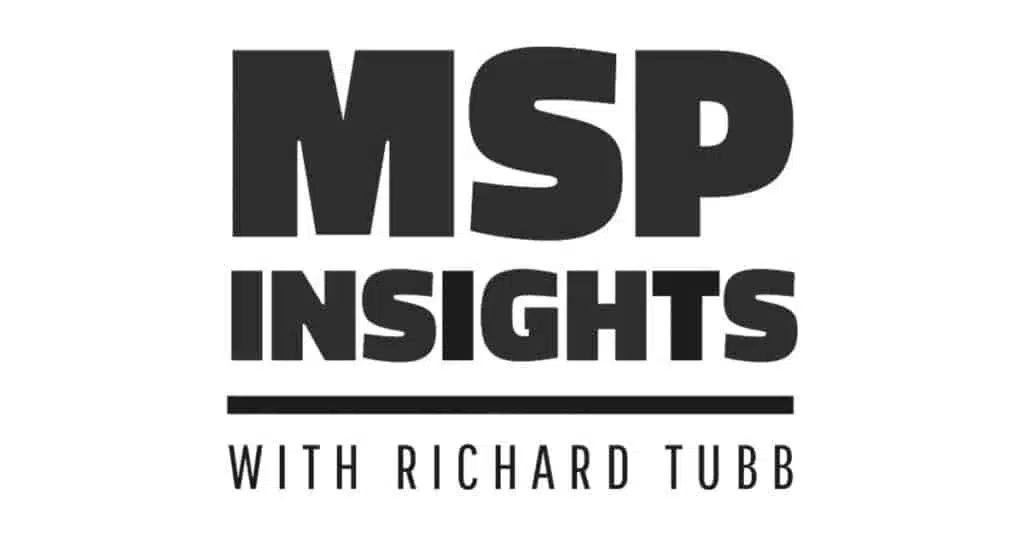
Comments